
- Prof. Dr. Govinda Bahadur Tumbahang
Dharma Bhakta Baskota, a medical doctor and professor of Institute of Medicine was appointed on November 2, 2019 to the post of the Vice Chancellor of Tribhuvan University for a four- year term by the then Chancellor and Prime Minister K.P. Sharma Oli on the basis of his party membership, his being close relative to the later, and his being a personal doctor of the erstwhile President Bidya Devi Bhandari. During his tenure, which ended on November 2, 2023, the university was padlocked for more than 341 days. It totally hampered regular classes, disrupted examination and result schedules, and disturbed other official works. Lawlessness, hooliganism and complete chaos reigned supreme in the University. Vice-Chancellor Baskota admitted this reality, and said at the meeting of the Education Committee of the House of Representatives that due to the padlock in the University, there was no working environment, and he could not do what he could have. Then, voices were heard from all around that the University had collapsed, and party politics was at the root of these all undesirable things, which should be removed totally from the University for its effective and efficient functioning.
After Bastkota's term was over, a new Vice-Chancellor was to be appointed. Prime Minister Pushpa Kamal Dahal pledged to appoint Vice-Chancellor through free and fair competition on the basis of merit, and free the University from party politics. It received loud applause from all of those who were in favor of meritocracy and quality education. However, some doubt was cast upon the truthfulness of the pledge on November 10, when Prime Minister Dahal nominated, as a member, Dr. Chandra Kala Ghimire, a lecturer of the Buddhism department and a Maoist party cadre, of the Selection and Recommendation Committee which comprised Minister for Education, Science and Technology Ashok Kumar Rai as coordinator, and Secretary to the Ministry of Education Suresh Adhikari as another member. All the same, he enjoyed benefit of the doubt until another secret of his was revealed.
There was provision for the candidates to score marks on the basis of experience, Ph.D. qualification, research articles and books. Finally, short listed candidates had to present their vision paper or action plan.
The Selection and Recommendation committed called for application through public notice on January 5 requiring that the applicants must be professor with minimum Master's academic qualification, have three years' experience of the office-bearer, submit concept paper and four-year long action plan. As per the ‘Procedure for Selection and Recommendation of Vice-Chancellor of Tribhuvan University, 2024’ issued by the government, the candidates had to submit along with the application a self-declaration letter stating that they were not a member of any political party. There was provision for the candidates to score marks on the basis of experience, Ph.D. qualification, research articles and books. Finally, short listed candidates had to present their vision paper or action plan. This public notice was widely criticized mainly for its requirement of three years' experience as an office- bearer, which prevented simple professors from being a candidate. On June 6, the Information Committee meeting cancelled this notice, removed the three years' experience of an office-bearer clause, and published it again on January 8 with the timeframe of 15 days from the date of its publication.
Altogether 43 candidates applied for this post, and most of them were university professors. Among them 14 candidates were shortlisted. They were interviewed, and their presentation of vision paper or action plan was also evaluated. According to the evaluation conducted in accordance with the ‘Procedure for Selection and Recommendation of the Vice-Chancellor of Tribhuvan University, 2024', out of 100 marks Professor Chitra Bahadur Budhathoki scored 78 marks, Professor Keshar Jang Baral scored 76 marks, and Professor Tanka Nath Upreti scored 75 marks. On the basis of the merit order, the Selection and Recommendation Committee recommended the names of Chitra Bahadur Budhathoki, Keshar Jang Baral and Tanka Nath Upreti, and sent it to the Prime Minister's Office the same day.
The result was leaked, and Professor Budhathoki received huge congratulations on his face book wall because most people had believed in Prime Minister Dahal's pledge. The Prime Minister delayed the appointment as he was not happy with the recommendation. He took Minister Rai to task for marking the scores of the candidates. Finally, he submitted to the party loyalty having been unable to stand the persisting pressure of the party-members and sister organizations, and appointed Professor Keshar Jang Baral, a diehard Maoist to the post of the Vice Chancellor on February 22.
The appointment of the second candidate in the merit order bypassing the first one has invited bitter criticism from the intellectual sector as it violated the pledge of Prime Minister Dahal to maintain meritocracy, and free the University from party politics. They say that the so called competition is merely eyewash, and the appointment of the Vice Chancellor is the case of blatant politicization. This issue was raised even in the meeting of the House of the Representatives.
The Vice- Chancellor called for an application from Professors for the posts of Rector and Registrar through public notice on March 9 giving the time limitation of 7 days.
The Vice- Chancellor called for an application from Professors for the posts of Rector and Registrar through public notice on March 9 giving the time limitation of 7 days. In response to it, more than 30 candidates applied for the post of the Rector and more than 60 candidates applied for the post of the Registrar. On March 17, he recommended Professor Dr. Khadga KC for the post of the Rector and Professor Dr. Kedar Rijal for the post of the Registrar, and sent it to the Chancellor's office. Though KC is said to be a supporter of the NCP (UML) and Rijal a Nepali Congress supporter, the Vice- Chancellor feels comfortable with them. It is said that Vice- Chancellor Baral had told the Chancellor before receiving the appointment letter that he would want to get appointed the Rector and Registrar on his recommendation, and the later had consented. However, the Chancellor did not appoint them for many days. Some newspapers had published the news that Chancellor Dahal had called the VC to his official residence, and asked him to recommend the name of Professor Dr. Bed Raj KC for the post of the Registrar as proposed by former Prime Minister and NCP (UML) chairman K.P. Sharma Oli, who was then sitting right in front of him.
The Vice- Chancellor has strong conviction that the University cannot be run without a cooperative and efficient team. Some months before, a group of the former Vice-Chancellors also suggested the same thing through their press release. But when the Chancellor who had appointed him, and given him permission to select his team was reluctant to appoint them, he was in firm determination to resign from the post, and live free and happy retired life. He passed the trouble-some days surrounded and threatened by aggressive students, teachers, personnel, and even outsiders of different political parties. Being threatened, he has taken Personal Security Officer from the government, and been on leave to avoid such unwanted delegations. When he didn't budge even an inch on his decision, Chancellor Dahal finally yielded and on April 12, appointed Professor Khadga KC to the post of the Rector and Prof. Dr. Kedar Rijal to the post of the Registrar. Former Vice-Chancellors and prominent intellectuals in a group met Vice-Chancellor and thanked him for the stand he had taken, and Prime Minister and Education Minister for the apolitical role they had played in the appointment of the Rector and Registrar of the Tribhuvan University. Now, the Vice-Chancellor has got a team of his choice. The whole University is waiting for the days of the sans party politics within its premises.
The author is the former Chief of Koshi Province and a professor at Centre for Nepal and Asian Studies (CNAS) of Tribhuvan University.


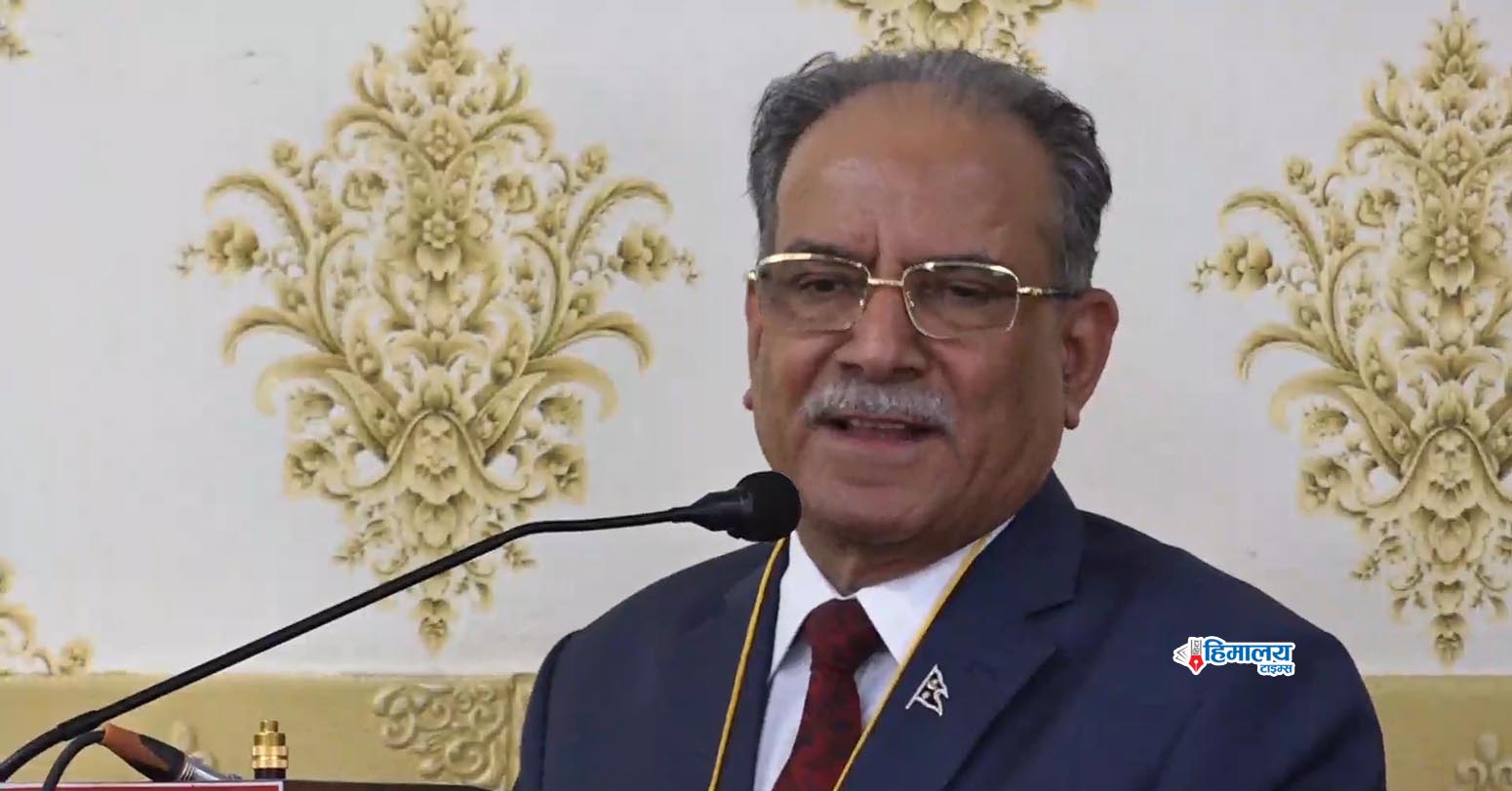
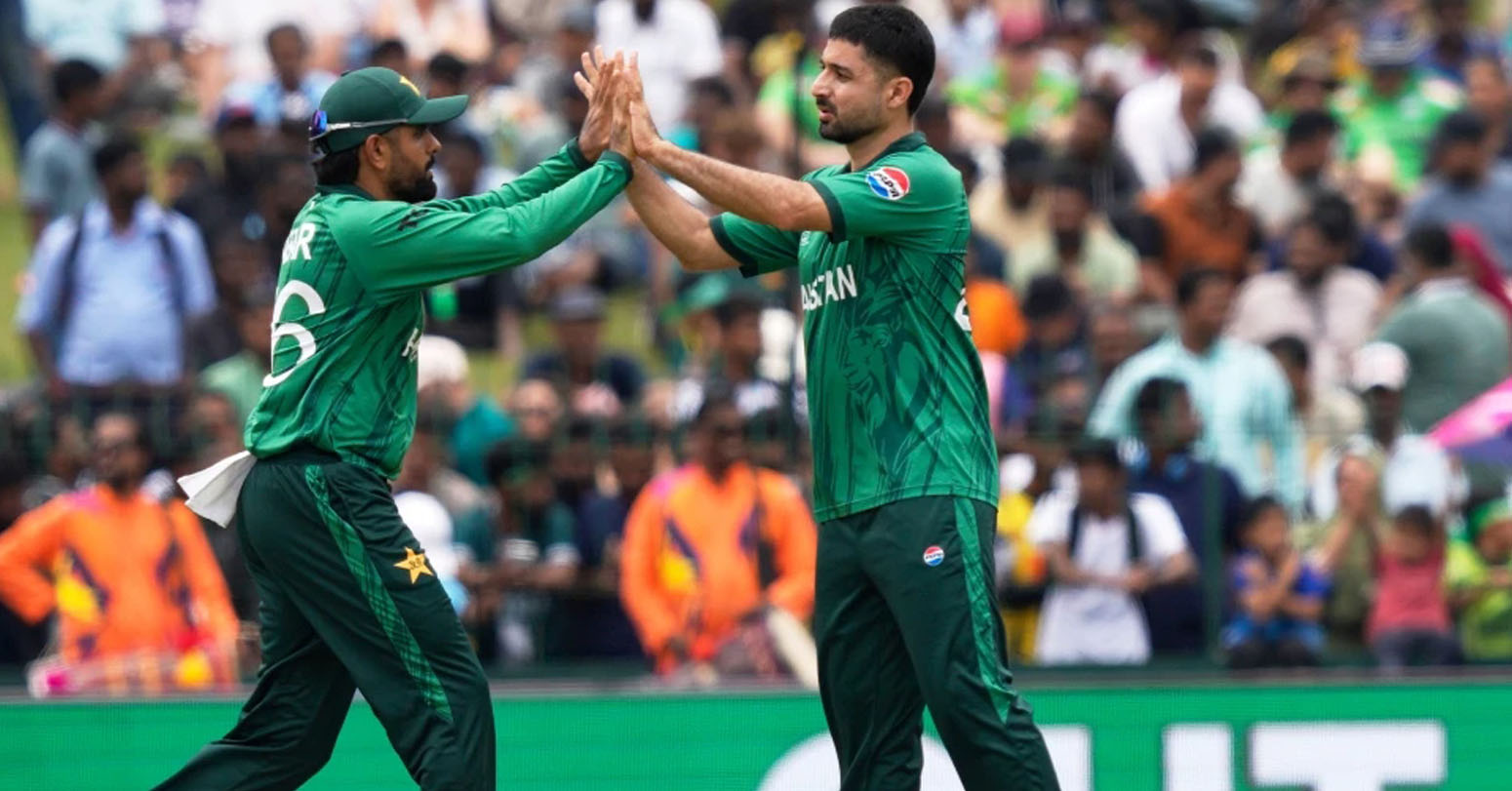

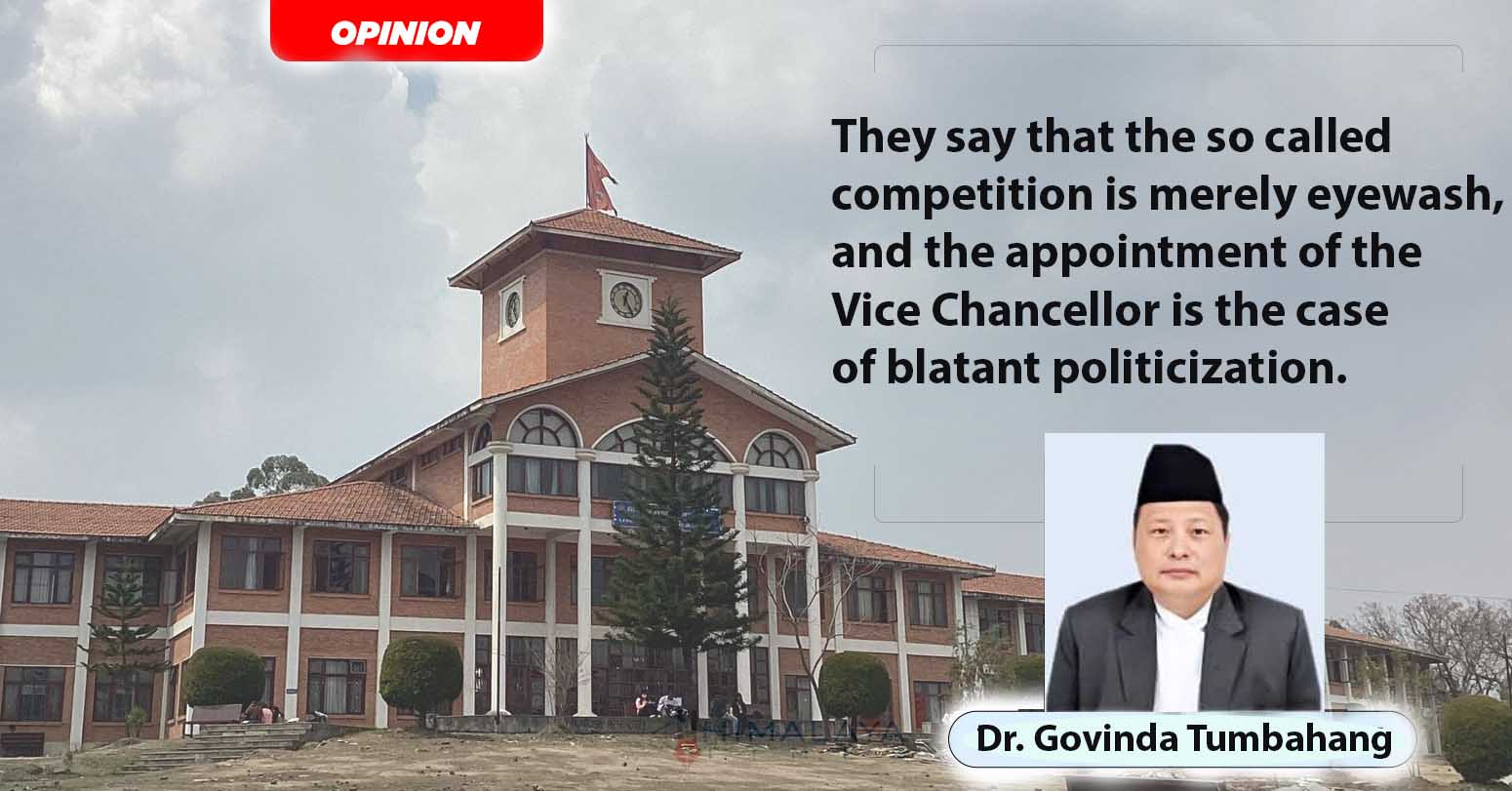


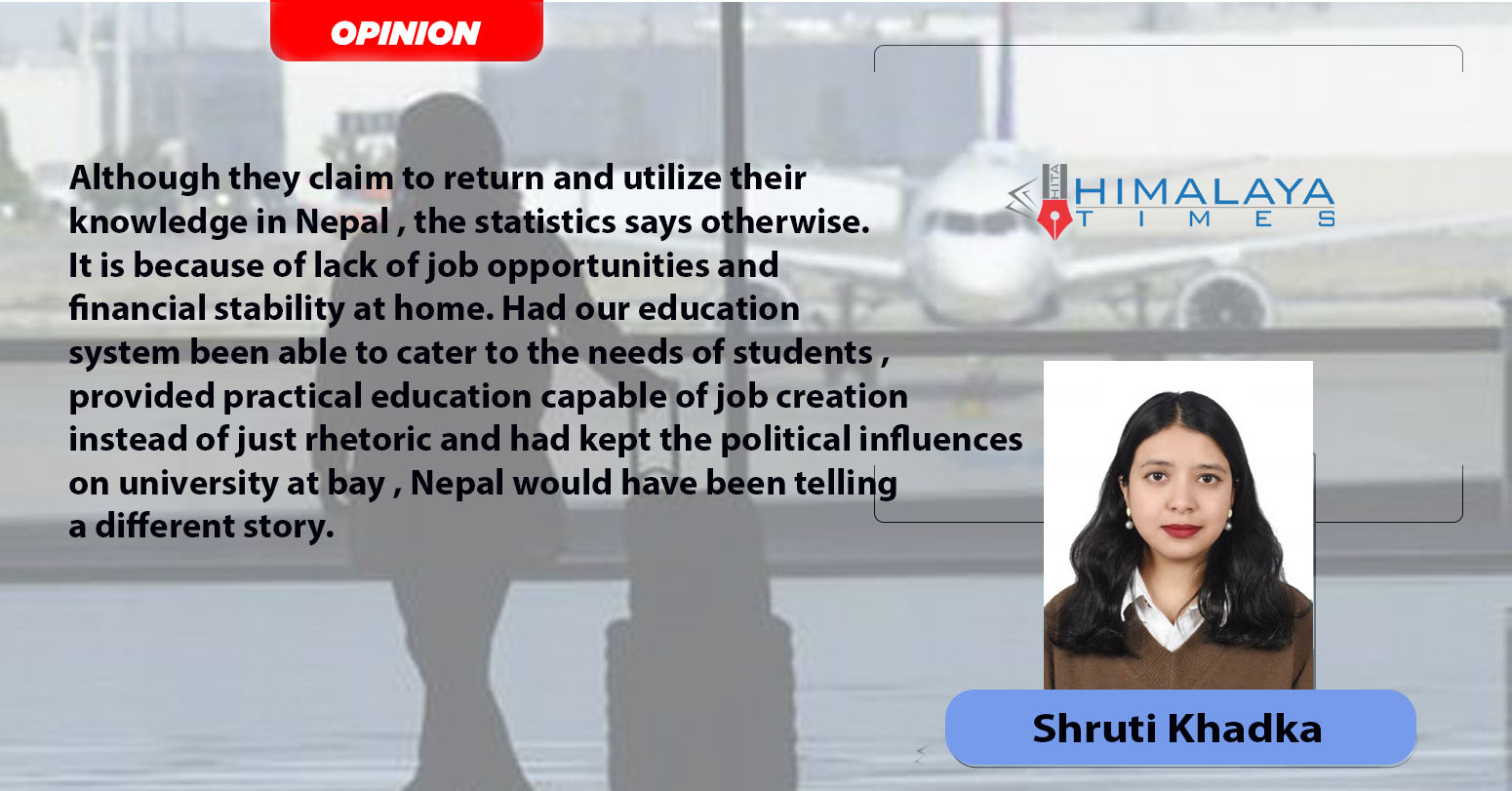








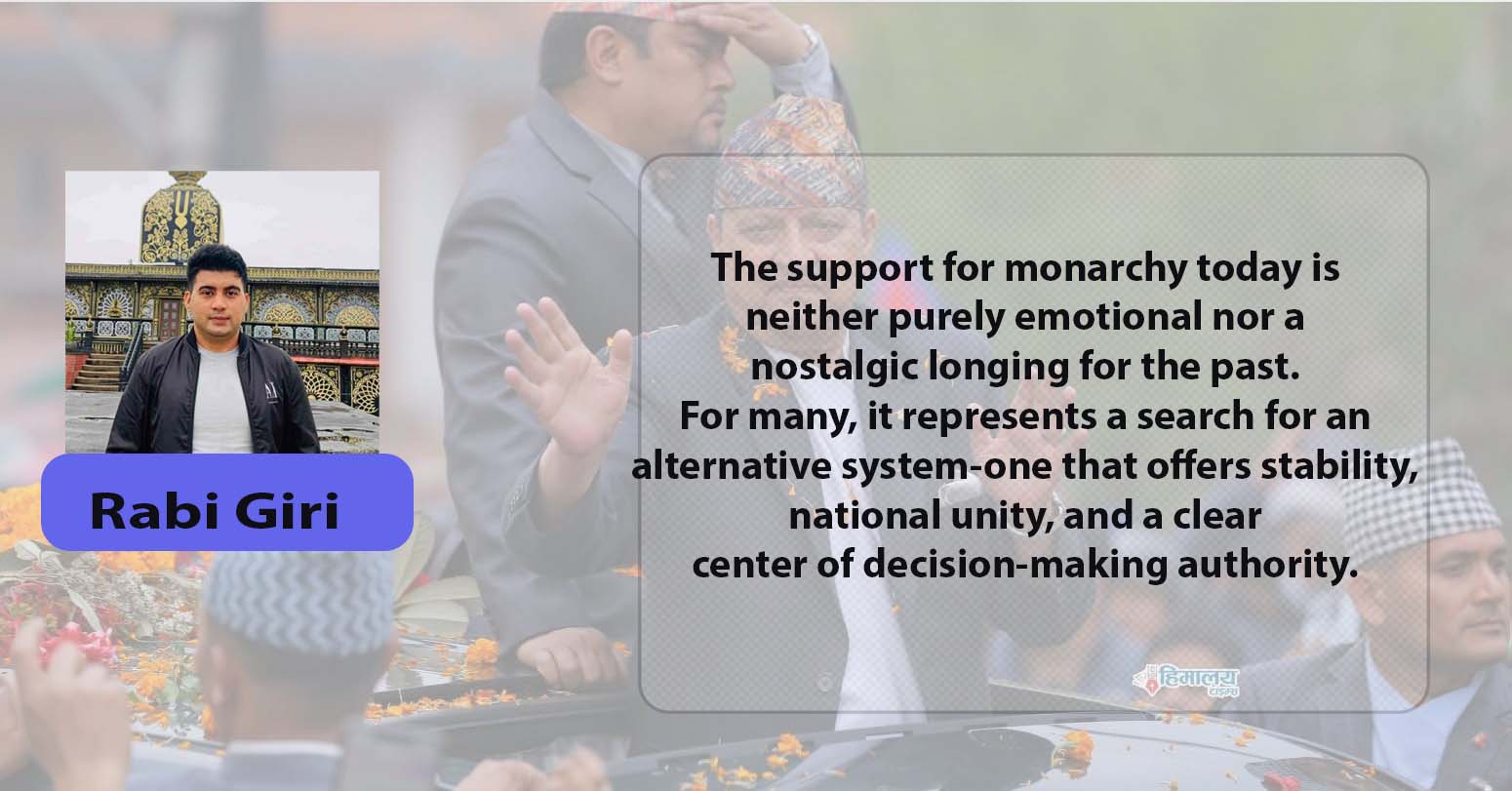
Middle-aged man spends millions to
Dr. Dharam Raj Upadhyay: Man
Children, Greatest Victims Of Sudan’s
Breathing The Unbreathable Air
Comprehensive Data Protection Law Critically
Gender Differences In Mental Healthcare